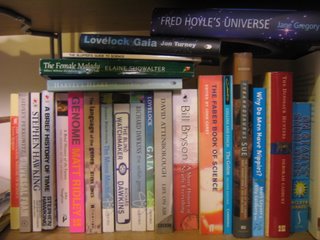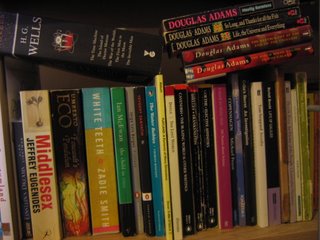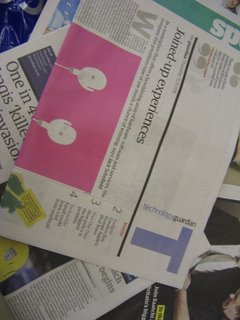A few people have said they are a bit lost about writing their blog entry. My simple answer is don't be. There isn't a secret criteria for it that I'm hiding for you to second-guess. Plus it's only 200-250 words and counts for a tiny % of your mark.
Find something in public culture that mentions science, i.e. not an article in Nature or anything else aimed at an audience of just scientists. Write about it.
You could introduce something you've spotted and think other members of the class might be interested in. Or you could take the opportunity to rant about something that's been annoying you for a while (note: ranting in the final essay will not be well received, now is the chance to get such things off your chest).
There are loads of things that reference or explain science which you could write about: art, tv and film (fiction and otherwise), all sorts of weird and wonderful websites, podcasts, blogs, shampoo adverts, just about anything... You can just take yourself to one of the museums on your lunch break. This listings site of science in London might also be useful. You can try looking at some of the science related blogs linked to on the sidebar and look at a few of the posts Sarah and I have done, but don't feel limited by these at all.
Try to keep it reasonably simple, 200 words isn't enough to get complicated in, and even if you are writing about something as widely known as television adverts, you'll need to spend at least a couple of sentences introducing it. It's always helpful to keep in mind what your audience is - it's your fellow class members.
Make sure nothing is offensive. If I think it is, I'll send it back to you and get you to rewrite before it goes up (you'll be marked on the one that goes up). Also, I expect a reasonably formal use of the English language - I'm not expecting Shakespeare, just avoid "txt-isms", etc.
If you want to include photos that's fine too (as long as they are your photos). Blog entries in cartoon or even rhyming forms are also fine, at the very least it'd make us laugh.
Any other questions, comment or email me. I won't mark drafts, but you can pitch an idea to me, see what I say (my answer will almost certainly be "that's fine").














